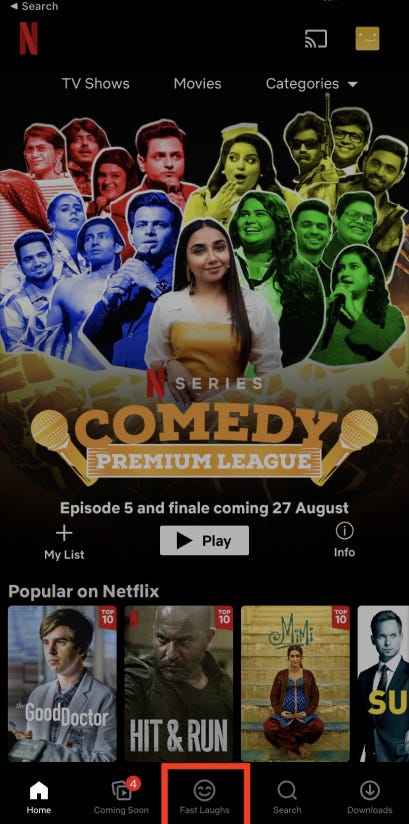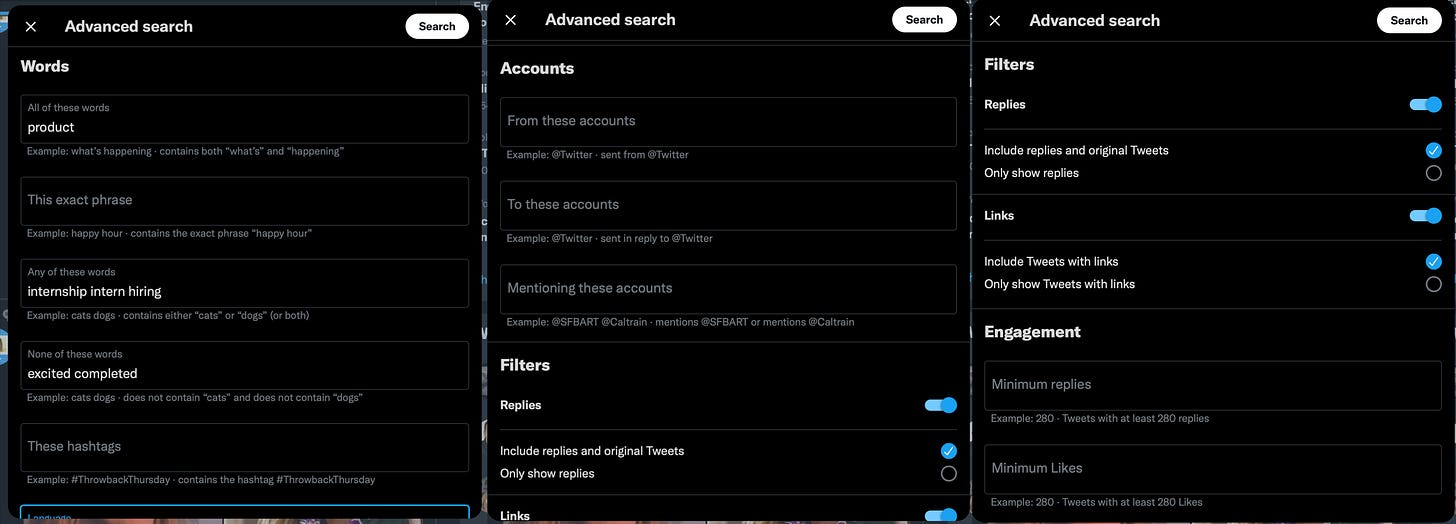The world is getting obsessed with search functionality. We tried to explain in our previous article how things clustered under specific categories are out available on the app's landing page in infinite scroll. In recent times, the average concentration levels have decreased so much that you need to bring everything to a place where it's easily accessible. The ‘Quick-Fun-Easy’ frenzy is the new normal. Incumbent players who relied on long-term engagement to deliver value to their customers are also hopping on this new trend. An example being,
We transitioned from awards to rewards, and now we want everything as quickly as possible. Rewards entice users to perform a certain kind of targeted action which results in some form of engagement for the companies, and hence both parties benefit from this transaction. I call it a transaction because you are rewarded but at what cost?
The Reward Cycle has been reduced considerably. I remember my mother collecting coupons daily from Dainik Bhaskar to claim a glass jar set somewhere around the end of the 3rd of the month from the day of collection. Today, she does a transaction on Google Pay and gets a 300 Rs flat discount on Myntra. What if I put a time limit tending to zero on the reward cycle? Can you guess a feature that rewards instantly?
Search is a must-have feature for any social app or, in fact, for any app; even if your search is useless, it's worth keeping on the home page. Search is the shortest reward cycle, and its consumption is insane. I can't even imagine what macOS and iPhones would look like without spotlight search. Search is not a make or break feature for any app (except for web-search apps), but it tells a lot about your tech quality :)
I type something on the search bar of an app with slightly incorrect spelling, and the app returns me nothing, and suddenly I am judging their tech team. Searches leave an impact on users. Any user would use the search function only when trying to engage with the app, and if the user gets disappointed at this step, then the app's acquisition efforts and cost are literally wasted.
There are two ways you can correct this -
Build your search feature like Google.
Make a catchy microcopy for the no results page.
I tried to search for some irrelevant words on different apps, and this is what I got.
Spotify tells me to check my spelling - Okay, cool.
Google always understands my intentions :) - It corrects my condensed words and matches me with the most relevant posts and videos (which are not relevant in this case).
Facebook simply tells me they don't have it.
Linkedin tells me the same with advice around spelling correction.
Twitter is more hospitable; it tries to correct me along with some other things I should be aware of.
There are also some innovative ways to show microcopy for 'no page found'. I like the one Nordstrom uses. For e-commerce websites, a failed search result means a potential loss in the transaction. Hence, they try to make most of the microcopy to redirect users back into the purchase loop.
Btw how do you search for something that is trending? And by trend, I don't limit myself to trending videos and dance trends, but a more comprehensive range of things like news, sports, etc.
Google search is one way, but I have noticed that these days people prefer to search on apps if the search results are specific to that platform. Dance trends can be easily found on Instagram, news and updates can be easily found on Twitter and so on. The benefit of using Google Search is that you get legitimate results, rumours are falsified with one search on Google. Hands down, the best search app for generic search cases.
But I prefer Twitter, sometimes or most of the time. Twitter search makes up for an interesting use case. Sometimes, I mean sometimes, we search for opinionated things. I find some statuses around certain news with positive sentiment, and I search Twitter to get a wider view of the same. If l get some negative opinion backed with results in some tweets, I get a better sense of the situation. We start reading news articles, but we fall in love with the opinions sections. There is a reason why we prefer reviews over something written in the description of an Amazon item. If platforms can use UGC (user-generated content) at places where it can be effectively leveraged, it can open new doors of engagement.
This is real food for thought- e-commerce shows UGC on product description pages (called reviews), but there are so many spaces where we can leverage the power of UGC. Youtube has UGC in the form of videos and comments of the videos (UGC on top of UGC). Can't we have a similar thing for Spotify songs, podcasts or playlists? Should Netflix include one additional comment section for TV series?
Can we use historical UGC to redirect false searches to correct places?
What if an app tracks all false searches, clusters them in an unsupervised manner and uses the same data to redirect future false searches to relevant searches. Today everything is done on the semantics level, i.e. suggestions around correct spelling. But what if I type something in a regional language and the platform only supports English. A correction in spelling is not a solution; only translation can help. Apps develop multilingual search options in such cases, but if the pattern is repetitive and the volume of such cases is low, tracking false searches and using them for other users might work here.
Bonus Content:
Do you know, you can use the Twitter search on a SQL like a search query. It's quite effective in cases where you are very specific about your searches. Let's say you are searching for a product intern. Twitter is not the best place for these types of searches, but you can still try your luck. I got two relevant searches on my first attempt.
There is an advanced search option available on Twitter (try finding it yourself), and given below is a glimpse of how it works -
That’s all for today. We’ll be seeing you next week with another teardown. Until then, if you enjoyed today’s article and found it insightful, do share ‘Understanding Nuances’ among your friends and peers!




